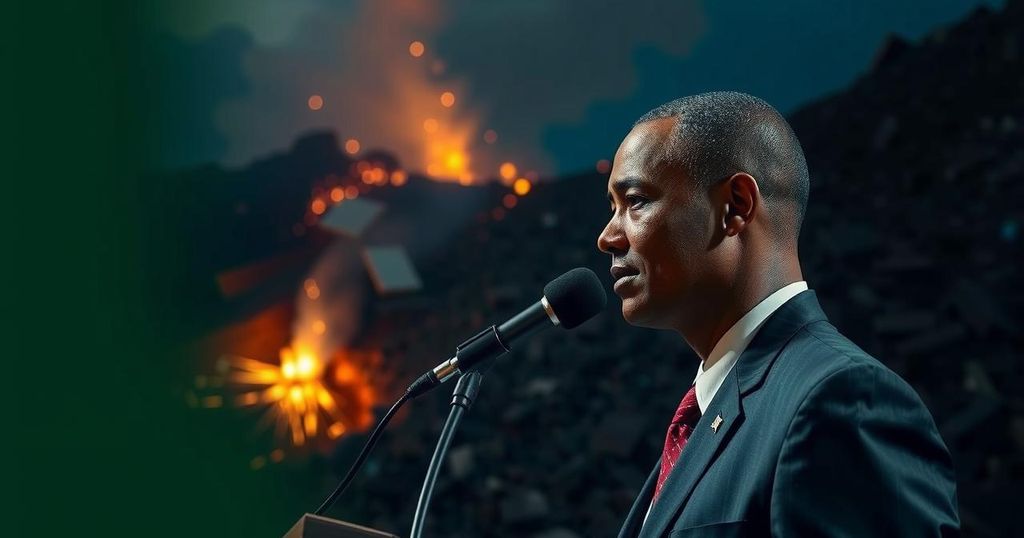Ghana’s Illegal Mining Crisis Looms Over Presidential Election
Ghana’s illegal mining, known as galamsey, poses critical challenges as the nation prepares for elections, pitting Vice President Mahamudu Bawumia against former President John Mahama. Amid rising unemployment and poverty, miners like Frank face harsh working conditions while acknowledging the environmental damage wrought by their actions. With cocoa farms and water sources at risk, the upcoming election raises important questions regarding the effectiveness of political promises to combat illegal mining and promote sustainable practices.
Frank, a miner engaged in illegal gold extraction, represents the many Ghanaians caught in the dangerous cycle of unemployment and poverty driven by the country’s unlawful mining practices known as “galamsey.” Amidst the approaches of the upcoming election—where Vice President Mahamudu Bawumia of the New Patriotic Party faces off against former President John Mahama from the National Democratic Congress—illegal mining remains a critical electoral issue, particularly in light of its dire environmental repercussions. As miners toil under harsh conditions to earn a living, they acknowledge the significant damage their work inflicts on both the environment and local economies.
The situation in Ghana, where illegal mining activities have surged despite government pledges to mitigate such practices, is alarming. Cocoa farms, vital to the nation’s economy, have suffered devastating losses, leading to the disheartening loss of over 19,000 hectares of land to mining. Rivers contaminated by harmful mining runoff further threaten the health of millions, leading to a growing call for political attention to illegal mining’s detrimental impact. Amid accusations of neglect, miners demand governmental support to engage in responsible mining rather than face crackdowns from law enforcement.
The paradox is stark: while illegal mining plays a crucial role in gold production in Ghana, employing over one million people, it also undermines legal economic structures by enriching criminal enterprises and depleting natural resources. The recent electoral discourse reflects a growing awareness of the need for effective policies addressing illegal mining, yet skepticism prevails concerning the sincerity of political promises regarding environmental stewardship and job creation. In the face of an intensifying crisis, citizens increasingly view the ongoing galamsey issue as illustrative of broader governmental failures, thereby seeking political accountability and sustainable solutions.
Ghana stands as a significant player in the global gold and cocoa markets, recognized as the sixth-largest gold exporter and the second-largest cocoa producer. However, the escalation of illegal mining, or galamsey, poses serious threats to the country’s agriculture and environmental integrity. The rise in gold prices and pervasive unemployment have spurred young men, like Frank, to engage in hazardous mining activities. This has led to notable losses in productive land, adversely affecting local economies and ecosystems. As political candidates prepare for an election, the galamsey crisis has emerged as a prominent issue, calling into question the effectiveness of current government policies and the prioritization of environmental sustainability over short-term economic gains.
In summary, Ghana’s illegal mining crisis highlights an ongoing struggle between economic survival and environmental preservation. As the nation heads towards an important election, the significant connections between illegal mining practices, governmental accountability, and public health are underscored. Miners and citizens alike express the urgent need for sustainable job creation and responsible mining practices that consider the wellbeing of the environment and future generations. Without substantial political engagement and a commitment to addressing the underlying issues of galamsey, the repercussions for Ghana’s land and its people will remain dire.
Original Source: www.cbs19news.com




Post Comment